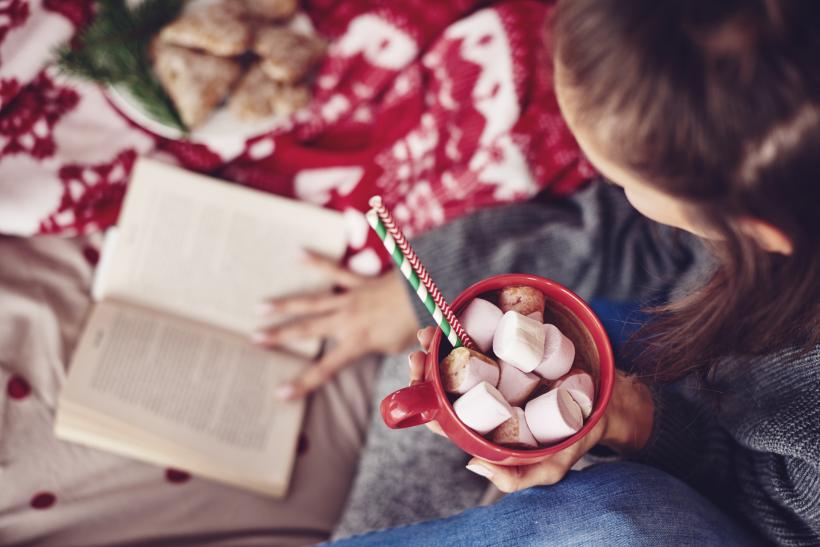
Here are tips for practicing self-care this holiday season.
Christmas is my favorite holiday. This "most wonderful time of the year" encourages families to come together, make resolutions, and reflect. Drinking eggnog, decorating my tree, smelling fresh pine surrounding my house — there isn’t much I don’t love about this holiday. But, I understand that this is not the case for everyone.
What happens when the holidays are only a reminder of loss and loneliness?
What happens when the most crowded and festive environments feel like the emptiest of places? What happens to those who have to carry the burden of nostalgia and sadness during a time when expressing those feelings is frowned upon? What happens to those struggling with depression or grief after experiencing one of the hardest years of their life?
If we look closely, we will find these people all around us. It can be a friend, sibling, colleague, parent, significant other, or even oneself. And while it doesn’t necessarily feel like the most wonderful time of the year, there’s no reason it needs to feel like the worst time of the year either.
Here are a variety of ways in which we can take care of ourselves and each other during this holiday season.
1. It’s okay to say “no” now and then.
Whether it’s office Secret Santa gatherings, holiday soirees, New Year’s Eve parties, or family get-togethers, the season is chock-full of parties. For some, attending parties is part of experiencing the holiday cheer. But, for others, all the socializing can quickly become exhausting.
Even more exhausting is having to explain your reasoning to someone else. This is why we’re telling you right now: it’s okay to say no every once in a while. It’s okay to decline to go to a crowded event when you know you won’t feel well. It’s okay to choose to not participate in an event because you’re not feeling it.
People usually express how freeing it feels to say “no." But what they don’t tell you is how difficult it feels to say "no" as well. This is why it’s important to surround yourself with people who have your best interests at heart — those who put your emotional well-being above their own wishes and encourage you to say “no.”
2. You can be alone, but there’s no need for you to be lonely.
Many people confuse being alone with being lonely. Being alone refers to a physical and situational feeling — in other words, having no people around you. Loneliness refers to something less tangible and more circumstantial. It feels as though you’re on your own, even when you’re surrounded by many people.
You Might Also Like: 5 Ways To Help Keep Kids Calm Over The Holidays
Those people I mentioned earlier — the ones who will support your decision of declining events and gatherings, sit next to you and not utter a word but simply offer their company, let you rant about how annoyingly festive your office is — these are the people you should seek out. These are the people who will respect your need to be alone but do everything in their power to help you feel less lonely. Accept those people during this difficult time. And, when possible, be that person.
3. Giving back to others can be a way to give back to yourself.
Something we often forget during the holiday season is the opportunity to give back to others. The consumerism of the holidays and the endless gift guides are partly to blame for shifting our focus from what’s truly important: sharing with others.
Studies have shown how volunteer work can have positive effects on people’s mental and physical health. I find that volunteering helps people in two different ways: they can focus on a positive activity that makes them feel rewarded and gratified, and they also receive an opportunity to put their lives in perspective. When we see others content with so little, we are better able to practice gratitude.
The ways you can give back to others are endless. Maybe visit a children’s hospital. Or donate your time at a retirement home. Do you have a special skill or a hobby? Use it to inspire others. There’s a magical effect that comes with giving back to a community. It fills you with a sense of purpose, which might be exactly what you need during this challenging time.
Self-care is always important — but it's especially crucial during triggering holidays.
While the media pressures us to feel festive and cheerful, it’s important to keep in mind that your well-being is what matters the most. Give yourself the time you need to feel better, stay close to those who build you up and set realistic expectations for yourself. Taking care of yourself can be the only thing on your Christmas list. And that’s okay.








